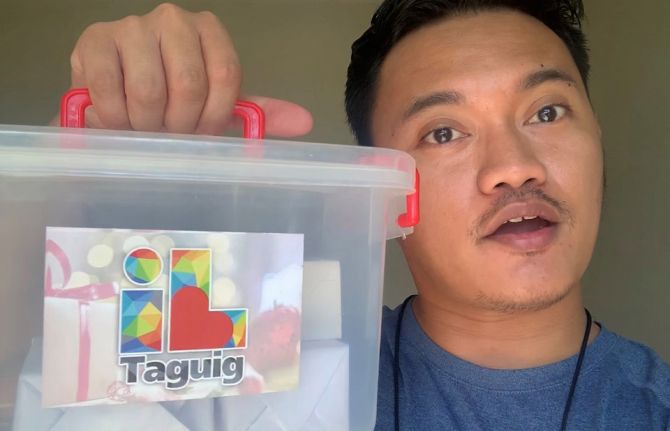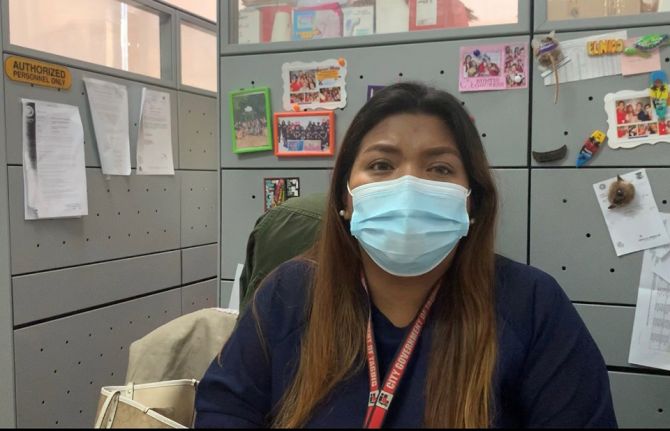



Feature Story
Ensuring that people living with HIV in the Philippines have access to treatment during COVID-19
08 April 2020
08 April 2020 08 April 2020The COVID-19 pandemic and the lockdown imposed by the Government of the Philippines to curb the spread of the disease are impacting the lives of people living with HIV across the country, creating a serious challenge to accessing life-saving antiretroviral therapy. To help address those challenges, civil society organizations have come together to support people living with HIV to access treatment.
Through a coordinated community-led mechanism, Network Plus Philippines, Pinoy Plus Advocacy Pilipinas, the Red Whistle and TLF Share Collective, are working together in the implementation of a new guideline issued by the Department of Health. The new guideline directs local authorities to ensure that people living with HIV can collect their medicine at the nearest HIV clinic and encourages the use of courier services for the pick-up and home delivery of antiretroviral therapy in order to avoid the risk of increased exposure to COVID-19.
“For many people living with HIV, accessing antiretroviral therapy from the nearest treatment hub is a welcome development. However, the nearest facility may not be within walking distance, and public transportation has been restricted. To be able to reach the HIV clinic, some need to pass through checkpoints, where they fear disclosure of their HIV status, as a few have already reportedly experienced,” said Richard Bragado, Adviser of Pinoy Plus Advocacy Pilipinas, an organization of people living with HIV, and the Administrator of Network Plus Philippines, the national network of organizations of people living with HIV.
The Red Whistle, a platform that raises awareness about HIV, has mobilized a pool of 40 volunteers to collect antiretroviral therapy refills from treatment hubs and deliver them to people across the country. TLF Share Collective, a civil society organization working on the sexual health, human rights and empowerment of lesbian, gay, bisexual, transgender and intersex (LGBTI) people, tapped the volunteers of its partner community-based organizations to deliver antiretroviral therapy.
“People living with HIV are displaced by the pandemic. Some lost their source of income and had to return to their original residence after losing their jobs. Ensuring uninterrupted treatment is not to be compromised. This is an integral part of our work on human rights,” said Anastacio Marasigan, Executive Director of TLF Share Collective.
Home delivery is made possible through a joint effort of civil society organizations and health facilities. “We ask treatment hubs to issue a letter of authorization to show to the checkpoint authorities that the driver is delivering essential medications. We are also working with local authorities to avoid unintended disclosures of confidential information of our clients at the checkpoints,” said Benedict Bernabe, Executive Director of the Red Whistle.
To identify the nearest treatment hubs, lists of antiretroviral therapy clinics have been disseminated through different channels, with the Red Whistle partnering with MapBeks, an online LGBTI mapping community, to create the Oplan #ARVayanihan, a map that includes all treatment hubs and primary HIV care facilities.
People living with HIV can share and ask for information through different platforms. Among them is the PLHIV Response Center, established by Pinoy Plus Advocacy Pilipinas to link callers with services. The hotline disseminates information about treatment hubs available and gives advice on how to access antiretroviral therapy.
TLF Share Collective has developed a tool to monitor the delivery of antiretroviral therapy by the community volunteers. The organization also developed frequently asked questions cards and consolidated existing hotline numbers.
“UNAIDS has regularly coordinated with civil society organization since the beginning of the COVID-19 outbreak, providing technical guidance and ensuring synergy with the efforts of the government,” said Louie Ocampo, UNAIDS Country Director for the Philippines.
The United Nations Development Programme and UNAIDS have developed a rapid survey to assess the different issues affecting people living with HIV in the Philippines. In addition to access-related issues, the results of the survey show the urgent need to protect human rights and facilitate access to mental health and social protection services. The findings have been shared with the government in order to ensure that actions are based on the constantly evolving situation in the context of the COVID-19 pandemic.



